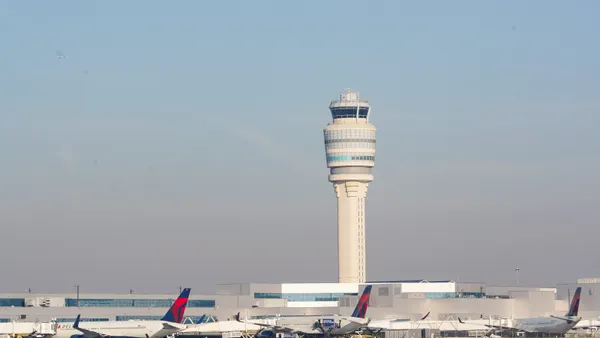UPDATE: May 8, 2019: Fisher Sand & Gravel, in addition to filing a complaint over the U.S.-Mexico border wall bidding process with the U.S. Government Accountability Office (GAO), has filed a lawsuit against the United States, alleging that Defense Department's Army Corps of Engineers has a “highly flawed solicitation and award process.”
Fisher is asking a federal court for an injunction against the Army Corps for continuing work on the projects under protest until the GAO has made a decision.
Company president Tommy Fisher reportedly told the Washington Examiner that, for the last two years, the Army Corps has prevented his company and other pre-qualified contractors from bidding on border wall contracts.
In the lawsuit, Fisher claimed that the Army Corps bid questionnaire asked that contractors provide information on border wall work completed in the prior five years but said that the agency has awarded border wall contracts to only two companies in that time period — SLS Ltd. and Barnard Construction Co. The lawsuit alleges that these companies ended up negotiating contracts with inflated amounts and did not provide the best value for taxpayers.
Dive Brief:
- An unsuccessful bidder in the most recent $976 million award round of U.S.-Mexico border wall contracts has filed a formal protest with the U.S. General Accountability Office (GAO) claiming that the selection process was flawed, according to CNN. These were the first contracts funded by the military under President Donald Trump’s February national emergency declaration.
- The U.S. Army Corps of Engineers announced in April that SLS Ltd. (SLSCO) had won a $789 million border contract for work in New Mexico and that Barnard Construction had won a $187 million design-build contract for wall replacement in Arizona. Protestor Fisher Sand & Gravel told the GAO that the Army Corps' bidding procedure "effectively suppressed competition and was designed to conduct an artificial process where the end result was known ahead of time” by including in the bid questionnaire an item that asked what previous bidders had done on the border wall in the last five years. This, Fisher said, narrowed the pool of qualified contractors.
- As part of a process that could last as long as 100 days, the Army Corps must justify its selection process to the GAO. No work on the border wall contracts in question can begin during that time, so completion dates of Oct. 1, 2020 for the New Mexico contract and Sept. 30, 2020 for the Arizona contract could be delayed.
Dive Insight:
Fisher was selected in August 2017, along with several other contractors, to build a wall prototype. Since then, company CEO Tommy Fisher has offered to build 234 miles of border wall for $1.4 billion, a price that includes 214 miles of border wall and 20 miles of levee wall in the Rio Grande Valley of Texas. For another $2.9 billion, Fisher said his company could provide paved roads, border security technology and a warranty. Prior to that, the North Dakota-based contractor had given estimates of between almost $11 billion and $12 billion for 700 miles of a cast-in-place concrete border wall.
If the Trump administration’s border wall plan can prevail over legal challenges from the House and elsewhere, it could soon be able to tap into up to $8 billion of Pentagon funds diverted from military counter-narcotics programs and construction budgets. In preparation, the Army Corps has issued a Prequalification of Sources notice aimed at contractors interested in doing border wall work.
Sure to spark additional pushback are the Department of Homeland Security’s recently published decisions to waive environmental laws and other regulations (read about them here, here and here) in order to expedite additional border wall projects in Arizona and New Mexico.












